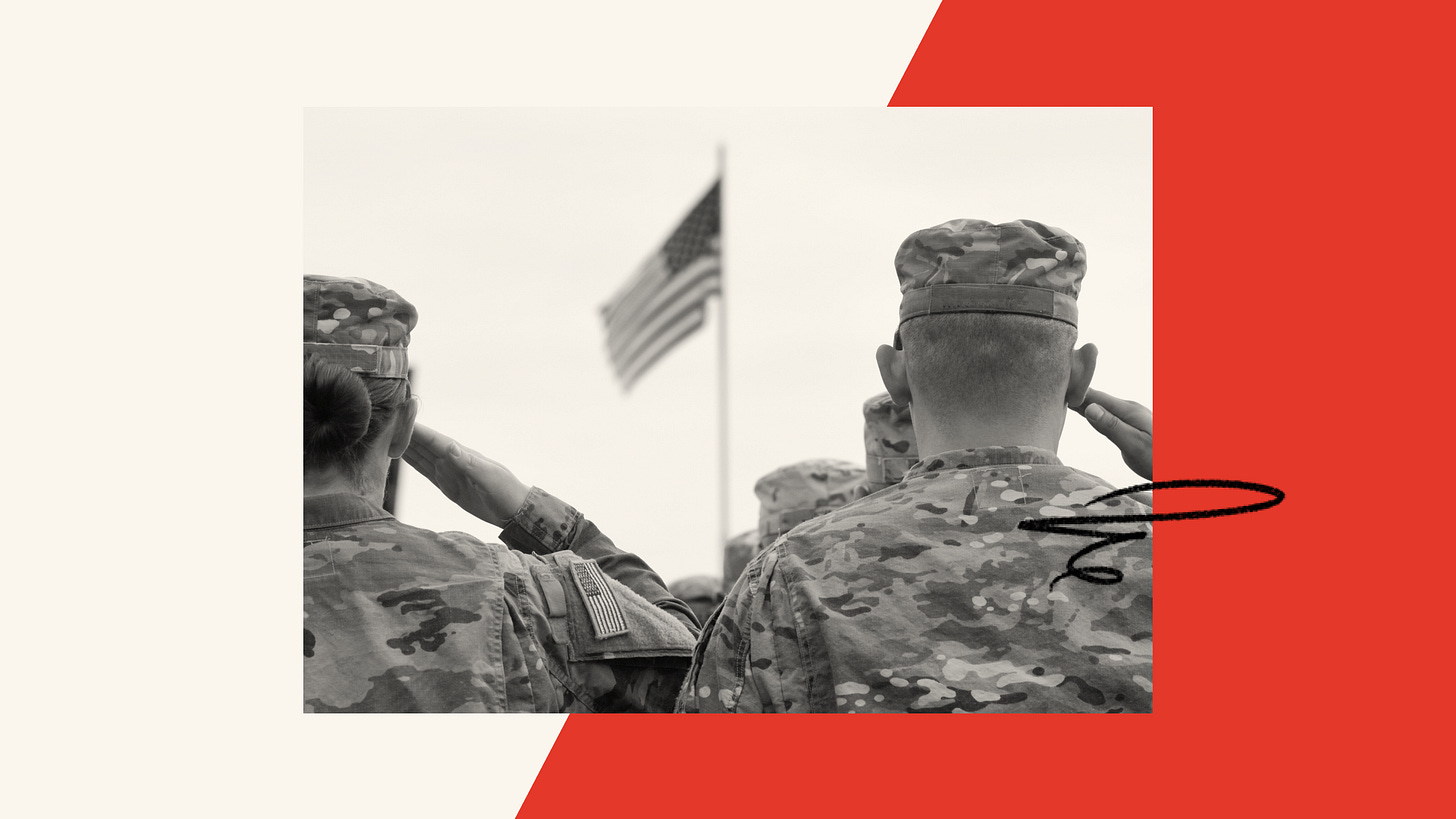An urgent warning from America’s retired military leadership
19 retired generals, admirals and service secretaries on Trump’s immunity claims
This week, SCOTUS-watchers may have spotted an unusual filing. Nineteen retired four-star generals and admirals and former service secretaries submitted an amicus brief siding with Jack Smith on whether presidents are immune from criminal prosecution. (Full disclosure: I am one of the lawyers representing them in the filing.)
Retired top brass is not a group that often weighs in at the Supreme Court. What led these military leaders to speak out?
They offer an urgent warning that former President Donald Trump’s claim of blanket presidential immunity — if the Court accepts it — poses a critical threat to U.S. national security. In the words of former Secretary of the Army Louis Caldera, speaking on MSNBC on Monday, criminal immunity would give the president permission to “order the military to use its might, its soldiers, its weapons, in a way that was unlawful.”
In their brief, the military leaders highlight three ways that placing the president above the law would undermine national security.
Presidential immunity erodes civilian control of the military
Civilian control of the military — that the military answers to the president, our elected commander-in-chief — was hardwired into our democracy from its founding. But the principle isn’t just about democratic accountability. Our military is accountable to civilian leadership as a way to ensure accountability to the law and the Constitution. And the dynamic between a civilian commander-in-chief and the uniformed military depends on mutual trust that both will honor a shared commitment to the rule of law.
A president that is unaccountable to the law could, with impunity, order members of the military to execute plainly unlawful orders — say, assassinating a rival or turning their weapons on peaceful protestors. This would badly damage the foundation of healthy civil-military relations. As the brief argues, Trump’s theory would “severely undermine the Commander-in-Chief’s legal and moral authority to lead the military forces, as it would signal that they but not he must obey the rule of law.”
Which leads to their next concern.
Immunity would damage the military’s role in the public trust
The United States military carries nonpartisan credibility because, as an institution, it is designed to serve the law and the Constitution, protected from the whims of politics. Case in point: the clearly established duty of all service members to disobey unlawful orders. Both in the courtroom and the public sphere, “just following orders” is no defense for breaking the law in this country.
Per the military leaders’ brief, freeing the commander-in-chief from criminal accountability “would fly in the face of that duty, creating the likelihood that service members will be placed in the impossible position of having to choose between following their Commander-in-Chief and obeying the laws enacted by Congress.”
That potential chaos and fracturing of the chain of command would not only damage the public’s view of the military, but would also undermine its ability to recruit new members to our all-volunteer armed forces. After all, who would want to join the military if the president can order you to commit crimes with no risk to him — and all risk to you?
An all-powerful president threatens the peaceful transition of power — and therefore national security
Finally, the military leaders focus on the peaceful transition of power, what they call “a hallmark feature of American democracy.” But, as they note, moments of transition also involve significant national security risks, as the outgoing administration must pass on the reins to their successors with minimal disruption to government functioning. (For example, the 9/11 Commission found that the delayed presidential transition after the 2000 election “hampered the new administration in identifying, recruiting, clearing, and obtaining Senate confirmation of key appointees,” including those responsible for counterterrorism.)
As we know from the last election, transitions where the voters force one president to cede the powers of the Oval Office to another can generate great risk for illegal behavior by the outgoing president. As a result, granting criminal immunity, and giving the commander-in-chief free rein to give unlawful orders, is akin to inviting national security crises at the most vulnerable moments for our country.
—
Presidents are not just politicians. They serve as the commander-in-chief for 1.3 million active duty personnel. To grant them blanket immunity for any crimes, placing the presidency (and only the presidency) above the law, fundamentally disrespects that constitutional duty — and the service of every member of the armed forces.
Read the military leaders’ whole brief here. It’s powerful and worth your time.




